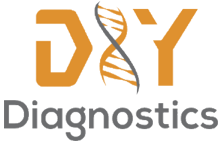1. Why did you pick the DIY Diagnostics stream?
With DIY it was easy to see how my work would make a direct impact on the health and wellbeing of others. My ultimate goal in any pursuit is leave the world better than I found it, and I think that this stream as obvious and exciting humanitarian leanings.
2. What diagnostic ideas are you most excited about?
Well, I work on an individual project, but one of the coolest things about the DIY stream is that it revolves around the concept of analyzing saliva to see what it can tell us about the state of an individual’s health, and then connecting that information to a phone or computer to get immediate, integrated results. We’ve already started this by making apps and collecting bacterial RNA data through the Oral Microbiome project, and so I’m excited to see what happens in the next couple of years.
3. How do you explain what you are doing to your parents or someone who’s never heard of the FRI.
I’m basically testing resistivity in solutions meant to mimick the salt concentrations found in the average person’s saliva, which will hopefully be able to tell me whether a subject is dehydrated or not. This is because as a person loses more and more of their water weight (body mass in water), the proportion of other stuff in bodily fluids goes up. Knowing this, we can test how much salt is in a solution by running an electric current through a sample and seeing how much of that current is lost (resistance). So, the less resistance there is, the more dehydrated you are.
4. Why do you love science? Do you consider yourself a scientist/researcher?
I admire science and scientists because absolutely every aspect of the natural world is considered fascinating and beautiful. Nothing is shunned or taken for granted and everything is important. I think that’s a great way not only to work, but also to look at the world.
5. How has being a part of the research community helped you succeed at UT in general?
Doing research with people at my own age and level has both helped me to find a place where I belong on this big campus, but also has shown me that everyone needs help in one way or another. One of the bravest things you can do is ask for help.
6. How was your experience learning to program mobile apps?
It was interesting to see how much complex and precise work goes into even the simplest web documents. It makes you appreciate more intricate computer interfaces.
7. Can you share a big “aha” moment you have had in the stream?
I never really had a moment; for me it was like an accumulation of work that showed me that if you try really hard and design your experiments well, good data will come from your labours.
8. Has anything particularly fun or funny happened to you in the stream?
Over the summer a group of researchers went paddleboarding as a send-off for one of us. It was a ton of fun and I’m proud to say that I jumped in and then fell in later.
9. Where do you see diagnostics in 20 years and how do you fit in the picture?
In 20 years I would expect a functioning, marketable dehydration diagnostic that incorporates electronics and can be inserted directly into the mouth. By this time it could feasably used for sports teams, adult care facilities, and youth groups from classrooms to extracurriculars to ensure health.

